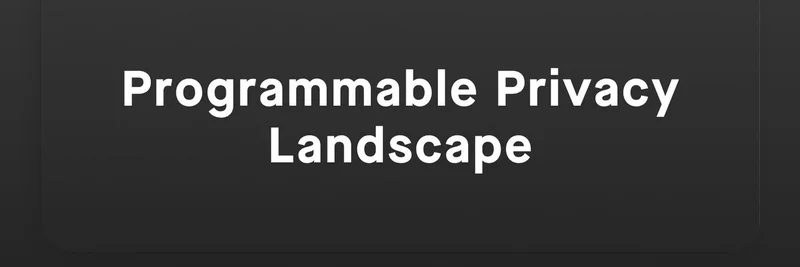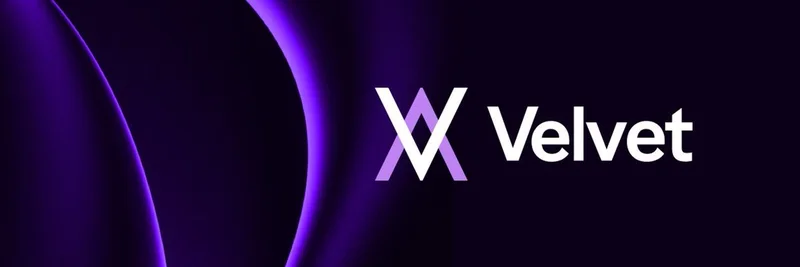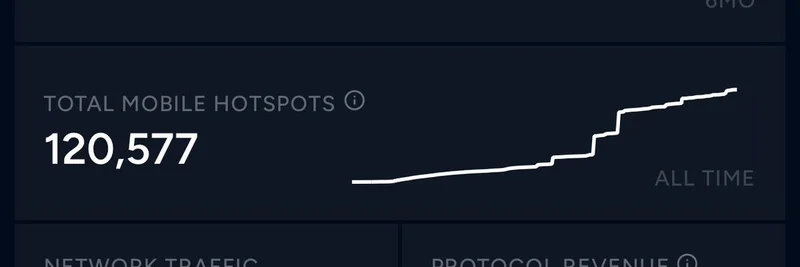In the fast-evolving crypto space, privacy isn't just a buzzword anymore—it's becoming essential infrastructure. A recent thread from Blockworks Research highlights their new report on the "Programmable Privacy Landscape," sponsored by Zcash. This isn't your grandma's privacy; we're talking about tech that lets you keep things confidential by default but still prove compliance when needed. Let's break it down, especially how it ties into the wild world of meme tokens and broader blockchain adoption.
Why Programmable Privacy Matters Now
Programmable privacy refers to blockchain tech that allows for customizable confidentiality. Think of it as having a lock on your door that you can open just a crack to show regulators what's inside without flinging it wide open. According to the report, this is shifting from a nice-to-have feature to core infrastructure, particularly for institutions that need private rails but with verifiable compliance through selective disclosure.
The thread kicks off by noting how institutions crave systems that are private-by-default yet allow for audits. This is huge in crypto, where transparency is king, but so is protecting sensitive data from prying eyes. For meme token enthusiasts, this could mean safer, more private trades without worrying about front-running or doxxing in volatile markets.
Zcash Leading the Charge
Zcash is front and center in this landscape, thanks to its focus on scalable shielded payments. The report dives into updates like Orchard and the upcoming Tachyon protocol, which aim to make privacy more efficient. Zcash boasts massive anonymity sets—over 5 million transactions for shielded spends—meaning your transactions blend into a huge pool, making them hard to trace.
One standout point from the thread is the Zashi wallet, which pushes a private-by-default user experience that's still compliance-friendly. This has sparked a surge in Zcash's shielded supply balance, showing real user adoption. If you're into meme tokens on chains like Solana or Ethereum, imagine applying similar shielding to your pumps and dumps—keeping your moves hidden while staying on the right side of regs.
Comparing Privacy Across Projects
The report doesn't stop at Zcash; it maps out the broader ecosystem with some key comparisons:
Monero: Stays true to cash-like privacy with ring signatures and stealth addresses, but it's less audit-friendly. While Monero's ring size of 16 offers heuristic protection, it's vulnerable to certain attacks, and hidden amounts make direct audits tricky. Great for retail users, but institutions might hesitate.
Ethereum and Solana: These heavyweights are embedding opt-in privacy. Ethereum uses zk-SNARKs for things like stealth addresses and Verkle trees, while Solana has confidential transfers via token extensions. Privacy isn't default here, but it's composable, meaning you can layer it into DeFi apps. For meme tokens, which thrive on these chains, this could prevent MEV (miner extractable value) exploits that snipe your trades.
Secret Network and Oasis: These rely on Trusted Execution Environments (TEEs) for confidential contracts. They offer private state and selective disclosure, but tradeoffs include hardware trust risks like side-channel attacks.
Mixers and Privacy Pools: Tools like Tornado Cash use zk-SNARKs for unlinkability, but they've faced regulatory heat. The trend is toward "privacy pools" with proof-of-innocence, allowing compliant flows. CoinJoin, on the other hand, uses collaborative transactions for better graph privacy.
Threshold cryptography and Multi-Party Computation (MPC) are also gaining traction for private custody, identity, and governance. Techniques like Shamir Secret Sharing split keys across parties, ensuring no single point of failure.
Policy Shifts and Adoption Trends
Policy is catching up, with the U.S. shifting post-Tornado Cash sanctions and the EU's AMLR set for 2027. The consensus? We need to control privacy, not ditch it entirely. Compliance-aware designs are key, favoring systems with selective disclosure over blanket bans.
Adoption is ramping up, especially in institutional circles. Zcash's compliance hooks make it a frontrunner, while Ethereum's Privacy Pools show steady growth. In the meme token scene, where hype can attract unwanted attention, these tools could shield creators and traders from surveillance, fostering more innovative, risk-taking communities.
For deeper dives into private DeFi like Railgun or Panther Protocol, the report notes challenges like gas funding but highlights their potential in trading and lending.
Wrapping It Up
This Blockworks Research report, unlocked by Zcash, paints a clear picture: privacy is evolving to balance confidentiality with accountability. Whether you're a meme token degen looking to trade anonymously or an institution eyeing compliant blockchain rails, these advancements are game-changers. Check out the full report for all the details, and follow the original thread on X for more insights.
As crypto matures, programmable privacy could be the key to unlocking mainstream adoption without sacrificing what makes blockchain revolutionary—decentralized control over your data. Stay tuned for how this plays out in the meme economy!



